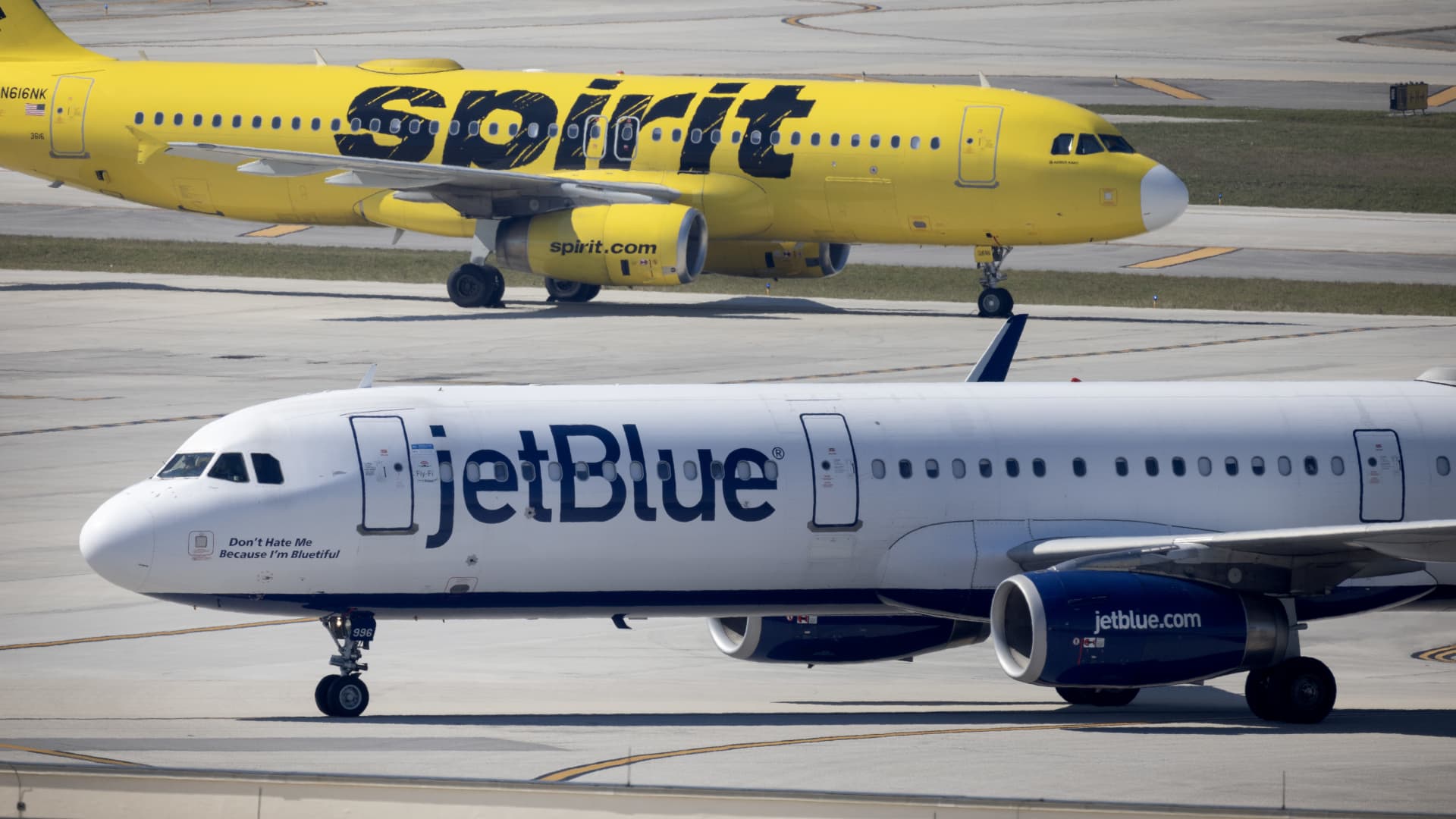A JetBlue Airways plane sits on the tarmac at the Fort Lauderdale-Hollywood International Airport on January 31, 2024 in Fort Lauderdale, Florida.
Joe Raedle | Getty Images
JetBlue Airways and Spirit Airlines on Monday said they are ending their agreement to merge, weeks after losing a federal antitrust lawsuit that challenged the deal.
The CEOs of JetBlue and Spirit cited regulatory hurdles in ending their merger agreement. The carriers contended they needed to combine to better compete with large airlines that control most of the U.S. market.
A federal judge in January sided with the Justice Department and blocked JetBlue’s attempted takeover of budget carrier Spirit. In his ruling, Judge William Young said JetBlue’s takeover of Spirit would “harm cost-conscious travelers who rely on Spirit’s low fares.”
JetBlue and Spirit had appealed the judge’s decision, but JetBlue noted the appeal was required under the terms of the merger agreement. Analysts had expected little chance of a successful appeal.
Spirit shares were down 14% in morning trading Monday, while JetBlue’s stock was up modestly.
Almost two years ago, JetBlue swooped in with an unsolicited bid for Spirit Airlines, which had weeks earlier struck a merger agreement with fellow budget airline Frontier. JetBlue ultimately won Spirit shareholder approval to take over the discount carrier.
“It was a bold and courageous plan intended to shake up the industry status quo, and we were right to compete with Frontier and go for an opportunity that would have supercharged our growth and provided more opportunities for crewmembers,” JetBlue CEO Joanna Geraghty said in a note to staff on Monday.
“However, with the ruling from the federal court and the Department of Justice’s continued opposition, the probability of getting the green light to move forward with the merger anytime soon is extremely low,” she said.
Geraghty took over as CEO from Robin Hayes last month, tasked with stopping JetBlue’s losses, improving its operation, and trimming costs. Activist investor Carl Icahn disclosed a nearly 10% stake in the airline on her first day, and days later won two board seats at the New York-based airline.
JetBlue’s prospective purchase of Spirit would have been a buoy for the struggling discounter airline, which is facing the grounding of dozens of its Airbus planes for inspections stemming from a Pratt & Whitney engine defect. Spirit expects compensation from the engine-maker as a result of the flaw.
With the deal off the table, Spirit must confront its financial problems alone, something its leaders say it is equipped to do.
The company said it was working to refinance its debt, and last month said it was on a path back to profitability thanks to better-than-expected demand. It projected revenue for the first quarter above analysts’ expectations.
“Throughout the transaction process, given the regulatory uncertainty, we have always considered the possibility of continuing to operate as a standalone business and have been evaluating and implementing several initiatives that will enable us to bolster profitability and elevate the Guest experience,” Spirit CEO Ted Christie said in a release.
He said Spirit shareholders received $425 million in prepayments from JetBlue during the agreement, and that JetBlue will pay Spirit $69 million related to the agreement’s termination.

